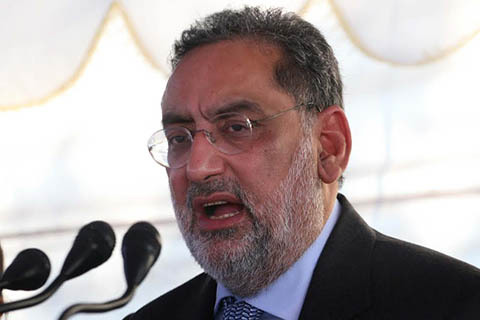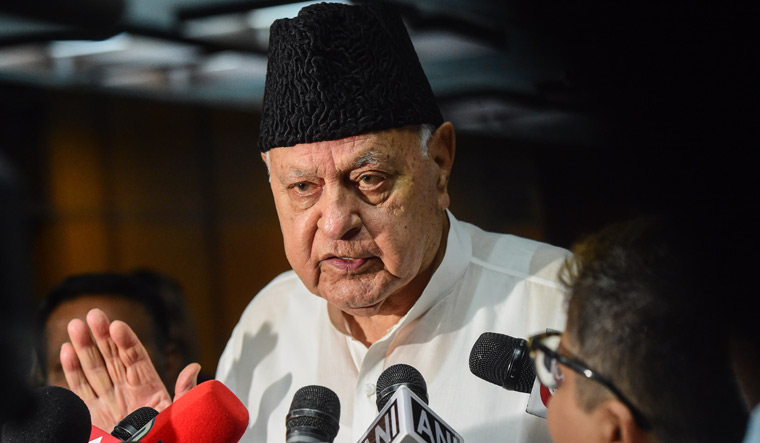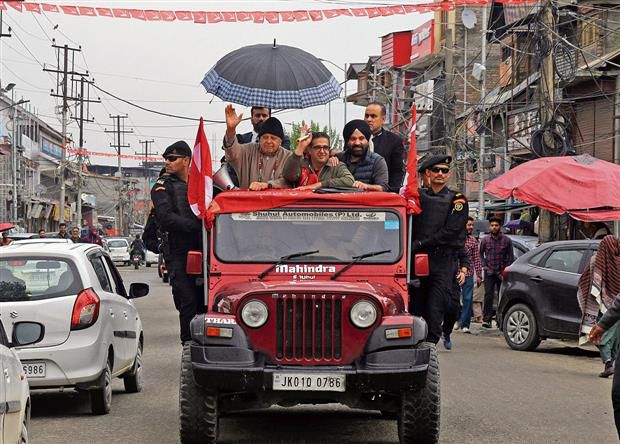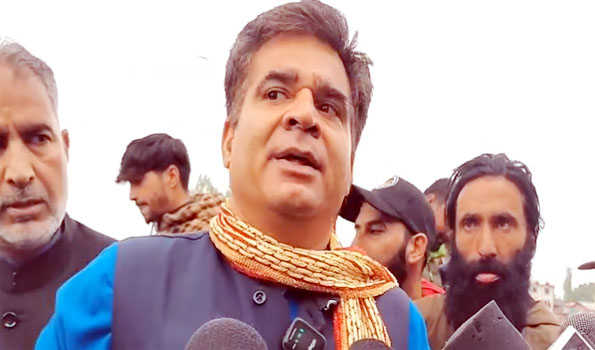With proposed implementation of Goods and Services Tax (GST) in Jammu and Kashmir triggering a massive controversy, minister of finance Haseeb Drabu on Thursday said a “false bogey” of dilution of state’s fiscal autonomy has been raised by “vested interests to distort the genuine debate” over bringing the state under the new tax regime.
“Far from eroding the special constitutional position, we are seeking to empower the J&K’s Legislative Assembly. If our government has any malafide intent, why would we bring it to the Assembly for a debate,” Drabu said, amid strong opposition by Kashmir traders, mainstream opposition parties and resistance leaders to the new tax regime.
The finance minister said never before in the history of J&K has the extension of a Constitutional Amendment of the Constitution of India to J&K been taken to the State Assembly for deliberations.
“Around 46 amendments have been extended through presidential order to J&K which have gradually eroded the state’s special constitutional position,” he said, adding: “While it is true that J&K Constitution gives us comprehensive legislative powers, the core of our special position is the powers of the Legislative Assembly. It is this institution of legislature that we are seeking to re-empower as it has been diluted over a period of time.”
“Instead of resorting to rhetoric, the opposition should come forward with a constructive roadmap on how they would like to go about implementing the new tax regime while safeguarding JK’s fiscal autonomy,” he said.
Drabu said the debate on GST is being “distorted through false propaganda peddled by vested interests.”
“Without even knowing what modifications were being proposed or suggesting what modifications can be made to the Constitutional Amendment 101 in its application to J&K, a false bogey of dilution of fiscal autonomy has been raised by some political parties to serve their own political interests,” he claimed, and added that the “said political party is now using various other political quarters, civil society groups and business community to whip up passions over the GST issue to suit its vested political interests.”
Regretting the “attitude” of the opposition political parties, Drabu said they could have played a constructive role and given their suggestions to modify the Constitutional Amendment 101. “If (former finance minister Abdul Rahim Rather, as he claims, has a blue print which he had worked out in 2012, what prevented him from placing it before the empowered committee of GST of which he was the chairman? Had he done so, it would have been incorporated in the amendment itself,” he said.
“If there indeed is a practical alternative that he has worked out, why did he not present it at the all-party meet recently? Or why isn’t he putting it in public domain even now? The government will be happy to examine it,” Drabu added.
The finance minister said if the GST, which has evolved over the last 12 years, is so adverse for the state’s special position, why did Rather agree to chair the body that was drafting it. “Why didn’t he present an alternative model to the Empowered Committee during his tenure as Finance Minister?” he asked.






